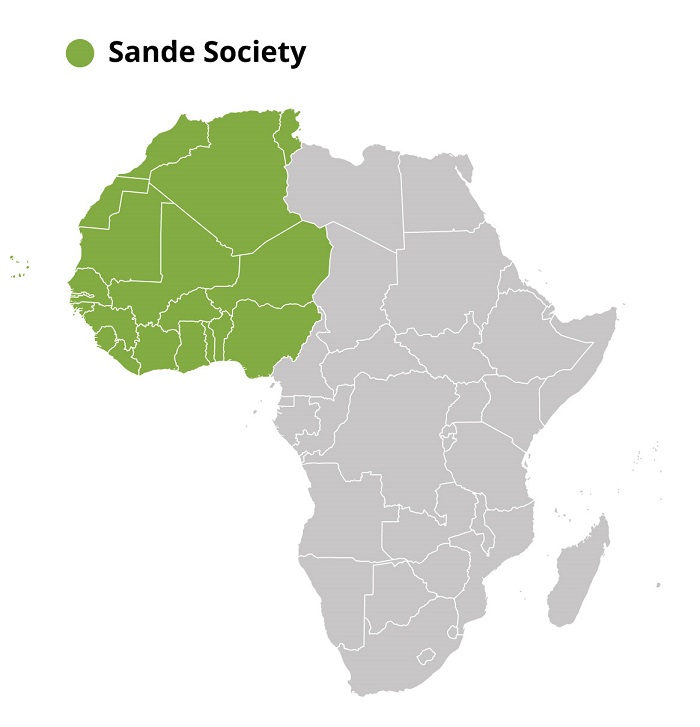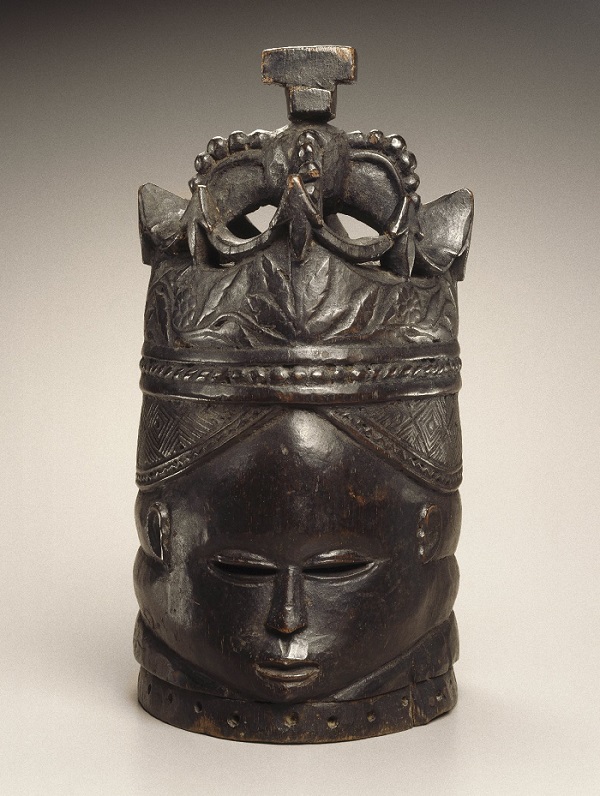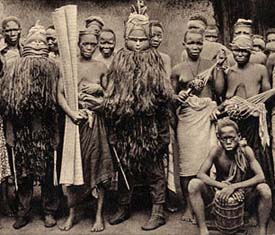
Music in Community Life I
Music in the Sande Initiation
Music is the epicenter of cultural life in Africa. As an integral part of social and religious activities, music plays an important role in sustaining social values and in maintaining the continuous relevance of traditional institutions. Musical performances are essential to religious rituals, initiation ceremonies, rites of passage, annual festivals, and the coronation of new kings, just to name a few. The status of music within such activities often goes beyond the level of an incidental performance or an embellishment. Rather than being a mere part of a ceremony or ritual, music is the ceremony or ritual. The use of music and dance in the initiation ceremonies of the Mende people of Sierra Leone and the Vai people of Liberia, both in West Africa, illustrates the importance of music in African religious and social institutions.
The traditional belief systems of the Mende and the Vai, like those of many other African ethnic groups, dictate that pubescent Mende boys and girls be taken through a process of initiation that culminates in their becoming members of gender-affiliated secret societies. Girls are initiated into the Sande female society, while boys are admitted into the Poro male society.
For initiation into the Sande society, young girls camp at a specially constructed building located near the village for an extended period of time, often for months. During the period of encampment, these young girls are circumcised and taken through a process of education that prepares them for marriage, with special focus on sexuality and child rearing. The girls are also educated about the medicinal value of certain plants, and taught how to prepare herbs for various ailments.
Music is at the center of this extended process of initiation. It is the means through which information about the stages of the initiation is passed from the secret world of the camp to the public domain of the village.
![]() IN HER OWN WORDS: RUTH PHILLIPS (1978)
IN HER OWN WORDS: RUTH PHILLIPS (1978)
In performing this role, the ndoli jowei dances around the village, supported by an all-female ensemble consisting of slit drums, membrane drums and shakers.
The Sande society performer stages choreographed dances to re-enact a traditional hunting expedition. The costumes of the masquerade include wicker headpieces, raffia skirts, and pod-shaped rattles tied around the legs (see Discover Video). These rattles produce interesting rhythmic sounds as the performer initiates dance.
The use of music in the Sande initiation ceremony is an example of how music in Africa functions to enforce societal mores, demonstrate the vitality of traditional institutions, define gender roles, and assert group solidarity.





The Vai have professional musicians--both men (manja) and women (kengai)--who receive training in the secret societies and provide music for social activities and events.








